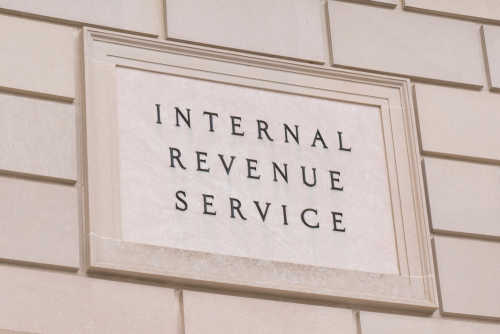(PatrioticPost.com)- The new Republican-led House started off their tenure in control by passing a new bill that would rescind the almost $71 billion the last Congress provided to the IRS.
In doing so, the GOP fulfilled one of its main campaign promises. That being said, it’s very unlikely that the legislation will advance any further. The Democrat-led Senate probably won’t even take up the bill, meaning it won’t come to fruition.
Under the Democrat majority Congress and President Joe Biden, the IRS received a big boost in funding that, over the next 10 years, would help them off-set the additional costs of their environmental and health priorities.
In addition to creating new revenue for the federal government, Democrats hoped that pouring this money into the IRS would replenish it with agents to help the agency provide basic services to American taxpayers, while ensuring tax compliance was administered fairly.
The $71 billion was in addition to what the agency receives annually from Congress through appropriations. Immediately after that money was passed, Republicans began using it in their campaign ads for the midterm elections.
The bill passed in the House along party lines, 221 to 210. The Democrats who control the Senate have said they will just ignore the bill and won’t even bring it up for debate or a vote.
Just before the vote was taken, the Congressional Budget Office conducted an estimate that said rescinding that extra money dedicated to the IRS would increase the country’s deficit by more than $114 billion over the next 10 years.
That was a slight knock on the GOP’s hope, since they’ve been saying all along that one of their top priorities once they took control of the House would be to address the deficit and reduce spending.
Many Republicans refused to step down in their support for the bill, despite the projection the CBO released not long before the vote was taken. One of those people was Representative Jeff Duncan of South Carolina, who said that Democrats passed that extra funding for the IRS with only one thing in mind.
He explained:
“To go after small businesses, hard-working Americans to try to raise money for reckless spending, reckless spending that has caused $31 trillion in debt in this nation.”
Charles Rettig, who’s now the former IRS commissioner, gave a final message to the IRS back in November, saying that the extra funding wouldn’t go just to extra enforcement. He said it would help in many other areas, making it “even less likely for honest taxpayers to hear from the IRS or receive an audit letter.”
Still, IRS funding has been a hotbed political topic since back in 2013. Then, during the Obama administration, the IRS used inappropriate criteria to review some organizations and tea party groups that were applying for tax-exempt status.
Since that time, the IRS has routinely lost out in debates over whether the agency should receive additional funding.














